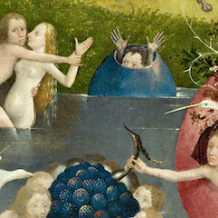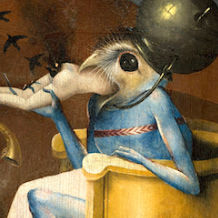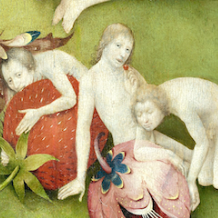Free Try-Out Edition
The Seven Sins
for Marilyn Monroe, born on 1 June 1926
|
Introduction
This is a short extract from Liz Greene's "The Seven Sins". The complete report of 40-50 pages can be ordered as an E-Horoscope or a bound booklet in the Astroshop. This horoscope analysis - using the insights of astrology and psychology combined with the tools of advanced computer technology - offers you an astrological portrait which is uniquely and individually focussed and which aims at providing greater self-knowledge. Is the twenty-first century really a time when we can talk about sin? Is sin necessarily something that reflects a religious world-view, or might it be a fundamental psychological dynamic that has profound meaning in terms of our compulsions, our struggles with our own tendencies toward destructiveness, and our efforts to contribute something creative to life? The concept of the Seven Cardinal Sins is a very ancient one, and long predates what we now think of in Western cultures as a medieval and grossly outdated list of offences against the dictates of religious orthodoxy. If we are to understand within a psychological framework what it might mean to sin, and what kind of profoundly complex and potentially transformative themes underpin older and often highly misleading interpretations, we will need to look more deeply at each of the Cardinal Sins and its expressions in individual character and life. The challenges of the Seven Sins don’t disappear with age, nor lessen with experience. What can change at any time in life, with effort and inner exploration, is our consciousness, and our capacity to recognise the subtle ways in which our inner compulsions can impel us to express the very best as well as the very worst within us.
The First Sin: Envy
The first chapter is about envy and the associated struggles. Liz Greene shows how you can find an inner authenticity that provides deep self-esteem throughout life.  The first Cardinal Sin is Envy. In Latin they called it 'Invidia'. Envy is not as simple as just wishing you had something someone else has, or wishing for qualities you see in another person but feel that you yourself lack. Envy has to do with your capacity to accept certain limitations on the ways in which you build the foundations of your self-confidence; if you can work with those limitations rather than ignoring them, then Envy can provide the bricks and mortar that help you to feel you have firm ground to stand on throughout life.
The pitfalls of being popular
You enjoy the company of others, and find inspiration in sharing your thoughts, feelings, and beliefs. You don't like being alone, and you may suffer considerable anxiety when you are thrown back on your own resources without the approval of the group. Your gregarious personality is a great asset. But you may be contemptuous of those loners who prefer not to engage with the crowd, and who are not likely to attend every party. You may feel critical and even suspicious [...]
Never build a house on a volcano
[..] When you do indulge in the pursuit of a grand passion, you are likely to do it in a restrained, secretive, and even manipulative way. Even the people you love most may not realise just how intense your feelings are. You may seek to control those you care most deeply about, but this will only make you even more mistrustful. You may have experienced a good deal of loneliness as a child, or faced destructive emotional undercurrents or a hurtfully critical atmosphere. Such experiences [...]
The Second Sin: Gluttony
The second chapter is about gluttony and how to discover a powerful inner aspiration that opens new dimensions of awareness. In the full version, this chapter contains nine topics.
The Third Sin: Wrath
In the third chapter, Liz Greene shows how you can transform rage and resentment into courage and self-affirmation. In the full version, this chapter contains eight topics.
The Fourth Sin: Pride
In the fourth chapter, Liz Greene explores the sin of Pride and how you can learn to experience inner self-love. In the full version, this chapter contains six topics.
The Fifth Sin: Lust
In the fifth chapter, you can find out how the sin of Lust can be turned into a profound inner sense of beauty and joy. In the full version, this chapter contains eight topics.
The Sixth Sin: Deceit
The sixth chapter deals with the sin of Deceit and the way you can develop a worldly wisdom that allows an ethical adaptation to life.  Deceit, the Sixth of the Cardinal Sins, was known as 'Avaritia' in Latin. The term Deceit, usually referred to as Avarice in medieval descriptions of the Sins, is based on a much older text that calls it 'the machinations of evil cunning'. The sin of Deceit is neither simple lying nor simple greed. It is the urge to use trickery, and can accompany a sense of superiority because successful perpetrators of Deceit believe that they are cleverer than other people and therefore entitled to dupe them. Yet the acute intelligence, perspicacity, subtlety, and depth that successful Deceit requires could also, if combined with integrity and compassion, generate something we might call Worldly Wisdom.
Go tell it on the mountain
[..] And whatever profession you pursue, make sure you deal with others with integrity. If you manipulate, cheat, or use devious tactics to get rid of rivals, you will eventually get found out. You have a great deal to offer, and your gifts merit honest expression. Your clever, nimble mind is a valuable asset in achieving your goals. Make sure you don't overdo the cleverness, or substitute quick wit for genuine honesty and clarity. You are easily bored, even with success if it ceases to inspire you, but it might not be wise to allow impatience and trickiness to undermine your efforts just at the moment [...]
Verbal overflow
You love telling stories, and you are inclined to make things up as you go along in order to add excitement and drama to any verbal or written exchange. This is a gift that reflects fertility of ideas and an endless stream of inventive thoughts and images that could be expressed most fruitfully through some kind of creative work. You have more ideas than you will ever be able to utilise in one lifetime, and your problem may lie in choosing which ones are truly viable. But you [...]
The Seventh Sin: Sloth
Chapter seven is concerned with transmuting apathy and depression into serenity and acceptance of life's cyclical nature.  The last of the Seven Cardinal Sins was known as Sloth, but earlier texts present it as 'Tristitia', which means Sadness. It was also called Indolence, and sometimes by the Latin term 'Acedia', which means Apathy. The fact that there have been so many different terms used for this last of the Sins suggests that it is a complex human expression with deep roots that need a subtler, more psychological understanding to reveal its nature. Apathy might sometimes reflect laziness; but it might also reflect deep unhappiness, dissatisfaction, and loss of faith and trust in life. But the ability to accept and move with the cycles of time in a spirit of grace, attentiveness, and loyalty to your inner dreams can transform Apathy into an immensely valuable quality: Serenity.
Let the right one in
You are genuinely interested in people, and feel energised and supported by their reciprocal interest and enthusiasm. But Apathy reveals its deeper nature and meaning only in solitude, and serenity can't be achieved through the ministrations of a committee or a group. Genuine inner peace can emerge from a deep contact with your own soul, whose voice can't be heard over the noise of the crowd. If you feel lonely or excluded, it may trigger depression, which could lead you [...]
The safe haven
Depression can trouble you if you experience unwelcome changes in your close relationships. You are deeply dependent on partners to provide you with a sense of security, even if you are reluctant to admit it. You may convince yourself that you are a detached and independent person, but you need to know that you can go away and come back again with a warm and loving welcome awaiting you. Learn to acknowledge your real feelings and express them more openly, rather than taking others' [...] Conclusion The Seven Sins have always been a powerful metaphor for the ways in which humans 'go wrong' in life. The Sins began as a story of the planetary journey of the soul into incarnation, but they were appropriated and given a particular moral slant by religious authorities, and have remained deep in human consciousness as impulses that, even in this apparently liberal twenty-first century, still have the power to make us feel bad about ourselves. In an era when deeper questions about the meaning and nature of life have been given definitive answers by science, sociology, and politics, it might be important to remember that the word 'sin', albeit abused by so many religious doctrines, means 'injury' or 'transgression': an injury against the unfolding patterns of life itself. Yet the Seven Sins are also very much more. Each of them conceals an immensely creative human impulse. If we are prepared to understand their roots rather than simply indulging in an orgy of guilty self-loathing, they could help us to fulfil the highest potentials of which we are capable.
Appendix
These small samples from different chapters convey a glimpse of your personal horoscope The Seven Sins which comprises 40-50 pages. It can be ordered as an E-Horoscope or bound booklet in the Astroshop. Please read a complete sample report (of a different person) to get an overview of the complete horoscope. You may wish to take a look at the large selection of other reports. |
The Seven Sins
by Liz Greene
Online Delivery
Receive immediately as PDF file, read directly on screen, print out at home. No shipping costs.Printed and bound
Printed and bound by hand. Delivery by postal mail. With additional shipping costs, depending on the country of delivery.Volume: 40 - 50 pages A4
Available languages: English